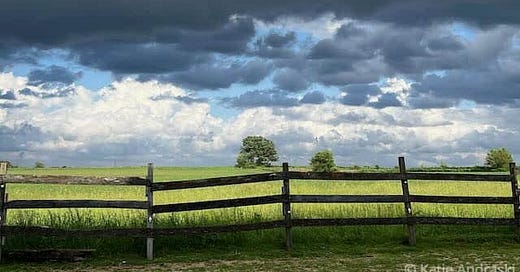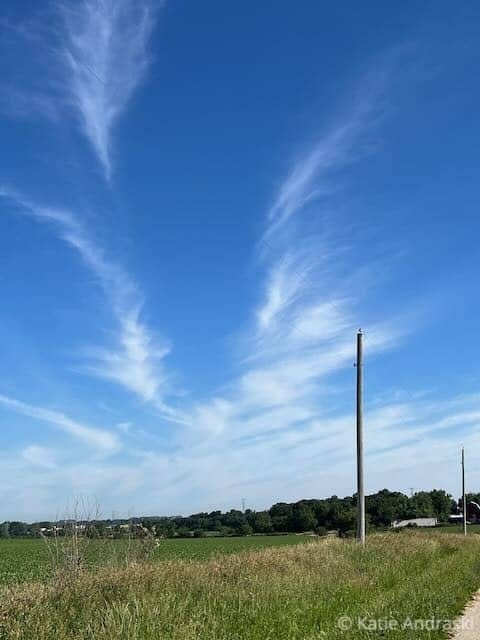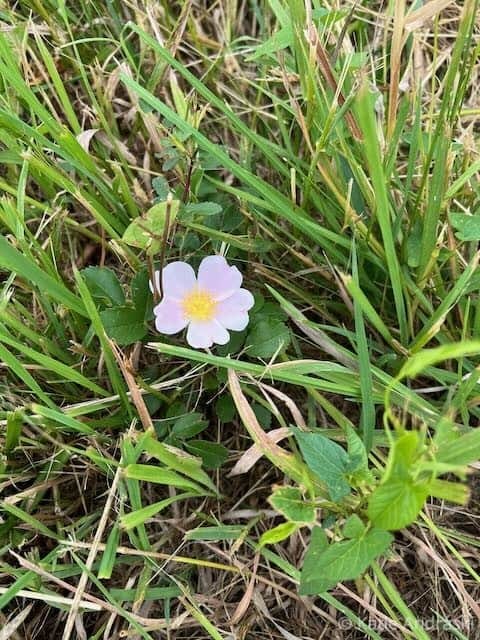In Revelation, when the Seventh Seal was opened, an angel took the golden censor, full of incense and the prayers of the saints. He filled it with fire from the altar and threw it down on earth, and "there were peals of thunder, rumblings, and flashes of lightning" (Rev. 8: 1 - 5). The voice of God's presence like on Sinai, the power we forget that is in our prayers.
Sometimes people frustrated with a mass shooting complain about thoughts and prayers. They want political action. And I feel sorry that people’s condolences are rejected, especially if people do say a prayer. When my father suddenly died of a heart attack, I felt the power and comfort of Liberty University’s prayers when I had to fly to Albany, leaving an author tour with Francis and Edith Schaeffer.
I think of Abraham standing on the plain talking to the three messengers: He was aware he was but “dust and ashes,” but he kept interceding, asking God to spare the city if there were fifty righteous on down to ten. It’s remarkable the father of God’s people interceding for a city that did not tend to its poor, a city so bad, the ground cried out to God. I think of standing on that plain talking to God.
And there is Moses who told God, “No don’t destroy your people, as stiff necked as they are, because you would look bad to the nations around here. I don’t want to be made into a great nation.” And God relented. When Miriam and Aaron badmouthed Moses’ choice of a wife, God stood up for him and said, "This man speaks to me face to face, unlike prophets who only see me in a vision or a dream. He is the meekest man in all the earth. God struck Miriam with leprosy." But again, Moses spoke up for her and begged God, “Heal her please, God heal her”. God showed mercy, but made her stay outside the camp for seven days.
And then there’s Jesus himself who intercedes for us before the throne of God. Because he knows our weaknesses and has suffered as we have suffered. “For we do not have a high priest who is unable to sympathize with our weaknesses, but one who in every respect has been tempted as we are, yet without sin. Let us then with confidence draw near to the throne of grace, that we may receive mercy and find grace to help in time of need.” (Hebrews 4:15 – 16, ESV).
If Jesus knows our weakness, because he has been tempted as we are, maybe our knowing our weakness, might make us more effective as we intercede for others. What strikes me here is how these humble prayers for other people, that can be as simple as, Lord heal her, steps us into the throne room with Jesus, that throne room that has seven golden candle sticks and four faced animals with wild wings fluttering and a sea of glass. Maybe we step out on the plain with Abraham, bargaining with God himself, to save the city. (But the outcry against that one was too great.)
I take comfort in the prayers we speak through in the Mission St. Clare app. Bruce and I frequently pray through morning prayer. These prayers from the Book of Common prayer lead us to pray for the country, the president, people in jail, the lonely, the armed forces. I don’t always remember to pray for the big stuff, though Lord knows it seems like the wheels are coming off our civilization. Through the Book of Common Prayer we pray with thousands around the world, “Grant, O God, that your holy and life-giving Spirit may so move every human heart [and especially the hearts of the people of this land], that barriers which divide us may crumble, suspicions disappear, and hatreds cease; that our divisions being healed, we may live in justice and peace;
through Jesus Christ our Lord. Amen.”
We’re not much different than the children of Israel walking in the desert with God up close and fiery or the children settled in their land, who were drawn to the gods of their neighbors. Yet we can stand before God asking for mercy like Abraham and Moses. The Jesus prayer: Lord Jesus Christ, son of the living God be merciful to me a sinner covers our cry for mercy, but we can also use it to pray for beloved people, even our enemies. I think of the liturgy before communion: Lamb of God who takes away the sins of the world, have mercy. The Lamb who was slain, set those sins as far as the east is from the west.
It’s hard to imagine that those simple prayers, said sitting on our couch, or by our bed or walking down the road are the same work Jesus does these days. It’s so quiet. At least most of the time. Sometimes we cry out with groans that are beyond language, tapping into the Spirit’s intercession that goes beyond words because we sometimes don’t know how to pray as we ought. All that’s there are sighs. Or tears. Or silence. Or pain. And sometimes we shout for joy or sing our thanks.
Praying for other people is the type of prayer I’m most familiar with. As an adolescent I worried my friends would be condemned to hell, so I took out my list and prayed for them to know Jesus. I was so sad those days, I wasn’t much of an advertisement for the joys of God’s reign. Often I’d doggedly pray for some people because I remember Jesus’ story of the widow who bugged the judge to give her justice. He got tired of hearing her complaint. Praying for others has been a way to defy my own selfishness, taking up friends’ time with too much of my own story. At least I can pray for them. It also helps me be aware of others’ lives, so I can ask about their life. These days asking, “How are you?” seems so rare, people now say “Thank you for asking.” Also, I have experienced how people’s prayers have blown out my darkness, like a stiff wind clears dense fog.
Strong’s Concordance notes that the "Greek for intercession, énteuksis, or intersection or hitting the mark" is the opposite of the Greek for sin—harmartia which means missing the mark, like an arrow flies over the bullseye. Strong’s says, “it is used in classical Greek as the antonym of harmartia (“to miss the mark, sin”)…Thus biblical intercession centers in waiting upon the Lord to learn what hits the mark (is His will)—i.e guiding the believer to act as His agent.”
So maybe this quiet service brings us right to the throne room, or the plain, standing alongside the Lord. I have seen people’s lives change from the boring, plodding prayers I’ve spoken for healing or reconciliation or just making it through. So tell me, how have you’ve seen God’s work in answer to your prayers?
Works Cited
Holy Bible English Standard Version. Crossway, 2016.
“Morning and Evening Prayer from the Mission of St. Clare.” Morning and Evening Prayer from The Mission of St. Clare, www.missionstclare.com/. Accessed 21 June 2024
The Online Book of Common Prayer, www.bcponline.org/. Accessed 21 June 2024
Strong’s Greek: 1783. Ἔντευξις (ENTEUXIS) -- a Petition, i.e. Spec. Supplication, biblehub.com/greek/1783.htm. Accessed 21 June 2024.














Share this post